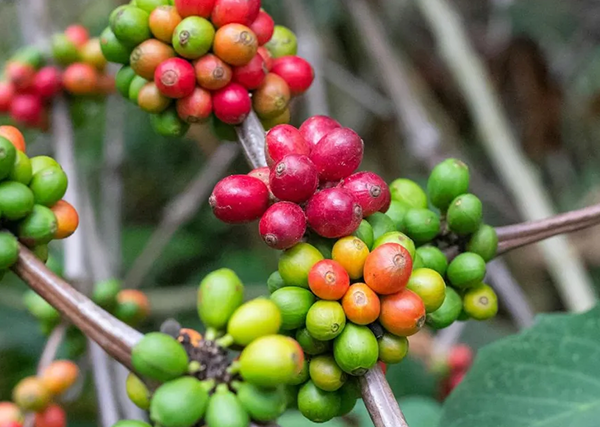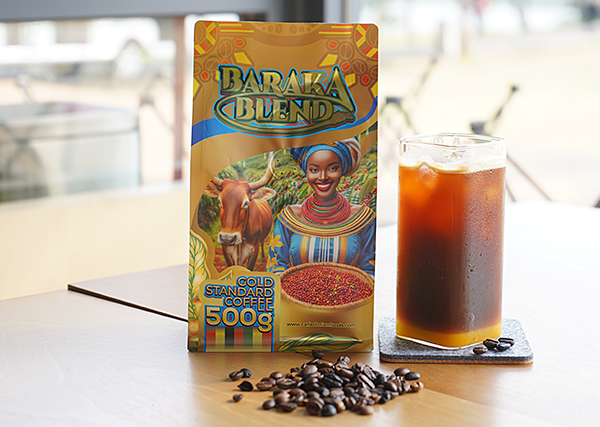Muri iki gihe'
Icyakora, raporo nshya ya politiki yashyizwe ahagaragara n'ishami ry'Umuryango w'abibumbye n'ubuhinzi (FAO) igaragaza ko dukunze kwirengagiza: Mu byukuri hari ibiciro byinshi byihishe inyuma ya kawa.
The report reveals a fact that behind the market price of coffee, there are actually far-reaching environmental and social impacts. Kuva mu cyubahiro kinini cya GREENSE rufite imirimo mibi ikoreshwa abana no gukwirakwiza amafaranga, ibi bituma twibaza niba ibi biciro byanditse byerekana""
FAO yerekanye ko raporo yibanda cyane ku nganda za kawa muri Afurika y'Iburasirazuba, bitwibutsa ko amafaranga menshi y'ibiryo ajyanye na sisitemu y'ibiribwa ntabwo agaragarira mu biciro by'isoko.
""- in other words, the indirect consequences of economic activities, such as environmental damage, social injustice and poverty. Ibi bicuruzwa, bidashoboka ko umusaruro utaziguye, nko mu mirimo cyangwa ifumbire, bikunze kwirengagizwa mu biciro kandi bigira ingaruka ku bahinzi b'imivuta n'abaturage.


The 50-page in-depth study reveals a startling fact: coffee production in Ethiopia, Uganda and Tanzania carries huge hidden costs. Ibi biciro birimo imihindagurikire y'ikirere, umwanda w'amazi, imirimo y'imirimo y'abana, icyuho cy'uburinganire, n'ikinyuranyo kiri hagati y'abahinzi ikawa kubona n'icyo bakeneye kugira ngo babeho neza.
Mu bihugu bitatu byize, cyane cyane Etiyopiya, icyuho kizima gifite ikiguzi kinini cyihishe, cyane cyane kubera ibiciro by'imirima mike ndetse n'impande zombi z'umuntu, cyane cyane ku bahinzi bambukira.
Ubushakashatsi bwasanze kandi ibintu bishingiye ku bidukikije, nk'ibyuka bihumanya ikirere no gukoresha amazi, ongeraho igiciro gikomeye kuri buri kilo w'ikawa cyakozwe mu bihugu bitatu.
Imibereho myiza hamwe nibidukikije mu musaruro wa kawa harimo ibi bikurikira: Imirimo ikoreshwa abana: abana benshi muri Farm ya Kawa yo muri Afurika y'Iburasirazuba bagomba gukora imirimo iremereye, nko gutoranya no gutondeka ikawa ya chediya, akenshi zibambura uburezi. The study calculated that this cost is as high as $0.42 per kilogram of coffee, especially in Uganda, where the problem is more serious. Gender inequality: In the coffee industry, women often earn less than men doing the same job. Although this income gap varies in different places, it reflects the gender inequality that is prevalent in the entire agricultural sector. Environmental costs: Growing coffee sometimes leads to deforestation, increased greenhouse gas emissions and water pollution. These hidden environmental costs vary depending on the planting method. For example, those intensive planting methods with high yields often produce more pollution.
The increase in the price of coffee at the source means that distributors have to raise prices at the same time. Kugirango bashobore kuba abaguzi bafite ubushake bwo kwishyura ikiguzi, bagomba gutangirira hamwe na kawa flavour, gupakira ikawa, nibindi byinshi birashobora kubona ibirango nibipakira byaka ikawa Abakora.


Igihe cyohereza: Jan-02-2025







